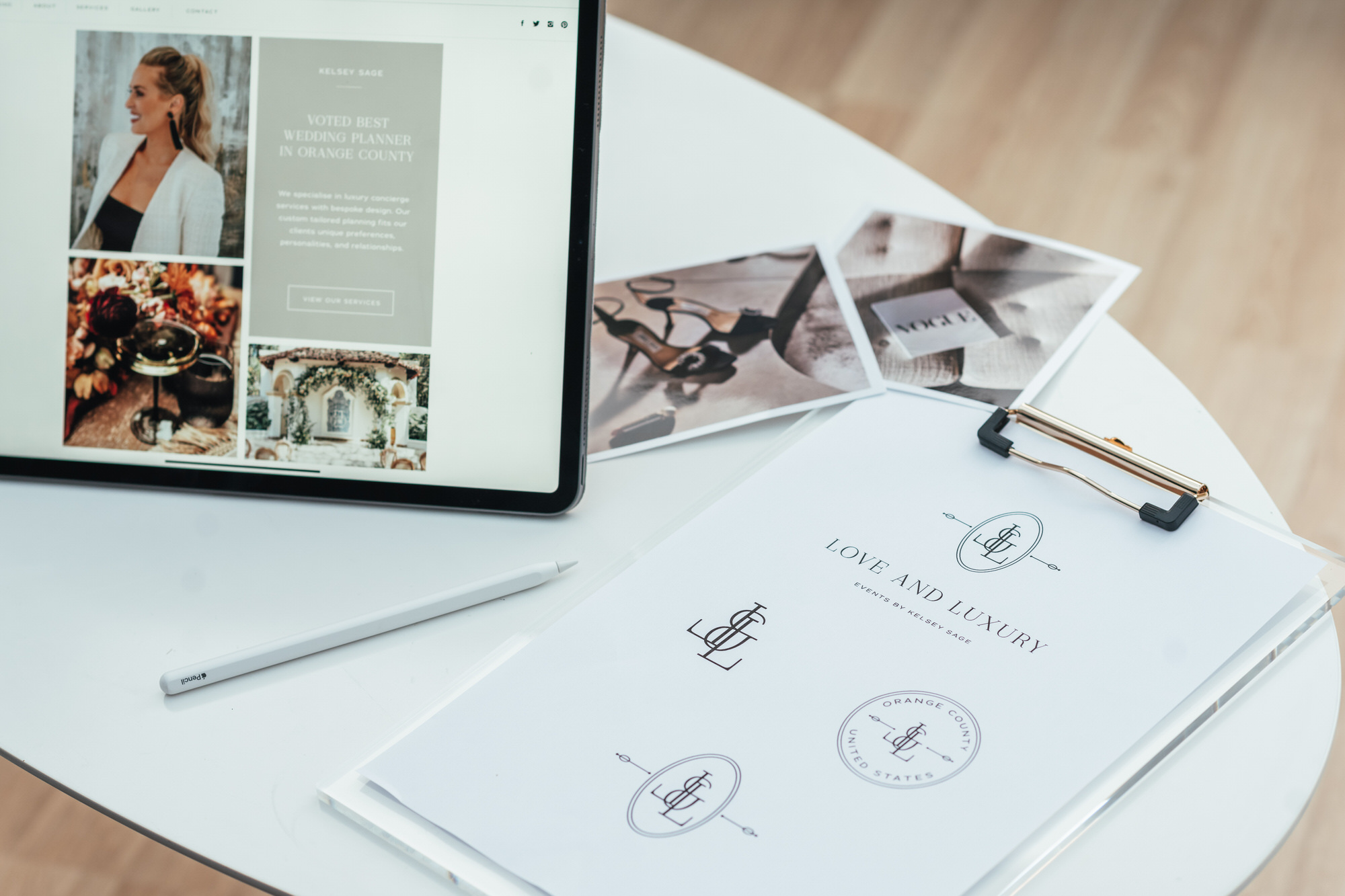
What is Luxury Brand Design and How to Make Your Brand More Desirable
Let’s begin by explaining what luxury brand design is not.
Luxury brand design is not just pretty aesthetics designed to make your business look pleasing to the eye. It’s not a shallow depiction of your brand that only focuses on the front cover of your narrative.
It goes beyond sophisticated fonts, pretty colours and polished logos because that is a superficial approach to branding which disconnects you from your ideal customers. Yes, they are all important, but they should be the cherry on top of a highly researched cake.
Your Luxury Brand Design Should Reflect Your Core Values
For every luxury brand with a stunning website, there’s a luxury brand designer who’s put hours of research in to make sure that every last element of the design is perfectly aligned with the brand’s core values, vision and target audience. These things don’t happen by chance, they are carefully planned out with military precision.
When you’re just focused on the visuals, your brand lacks depth and meaning. It makes you lose sight of who you are, what you stand for and what your point of difference is. You might look good, but if you haven’t thought about the ‘why’ behind your aesthetics, you’re inadvertently conveying a message which is attracting the wrong audience.
Think of it like dressing in someone else’s clothes. You look the part, but it’s not you; you’re posing to be someone you’re not.
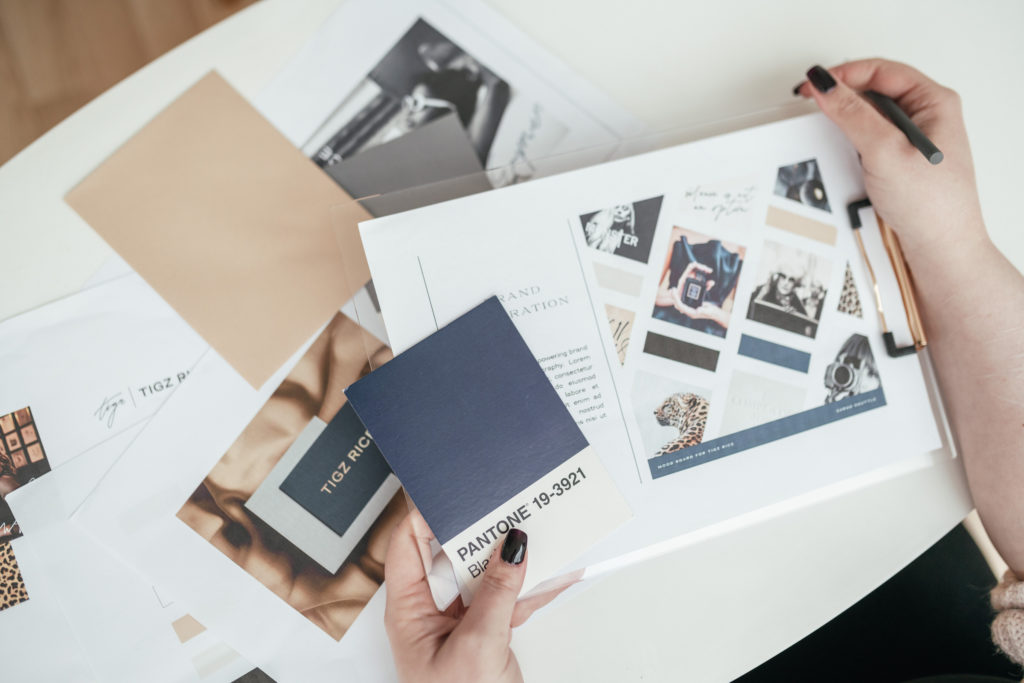
So What Exactly is Luxury Brand Design?
Now we’re clear on what luxury brand design is not, let’s talk about what it is.
It’s a strategic design process, which considers all of your business goals to ensure your brand design is unmistakably you; delving deep into what makes you special, what makes you unique and most importantly what makes your brand desirable.
It combines multiple different visual elements to create a bold statement that your customers identify with. Think of luxury brand design like a tightly woven tapestry of psychological cues designed to quickly trigger parts of the brain that are associated with positive emotions and reward. In fact, we process visuals 60,000 times faster than text which means people have already made a snap judgement about your brand before they’ve read a single word.
Luxury brand design is all about getting your customers to feel something when they look at your business branding and setting expectations for what they should expect to come. That is usually to impress or excite.
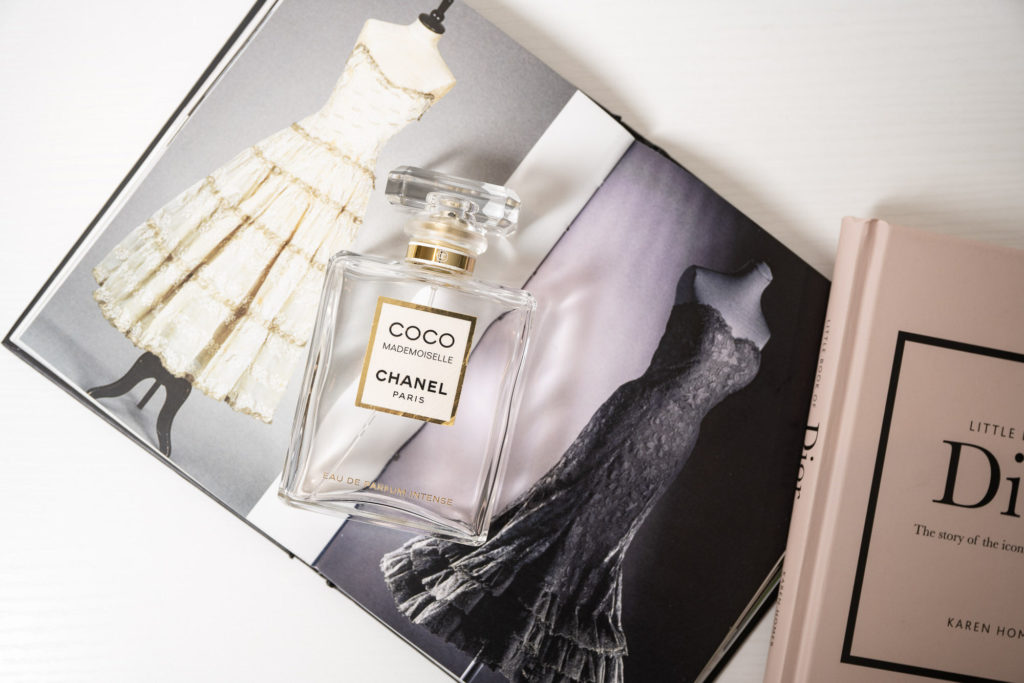
Examples of Highly Emotive Luxury Brand Design
Chanel
Chanel’s brand colours are black, white and beige with gold being used as their accent colour. These colours are sophisticated, elegant and very refined. Which is a mirror reflection of the brand’s iconic fashion designs.
As a fashion designer, Coco Chanel designed clothes for elegant women. She created blouses, suits, trousers, dresses, and jewellery which were bold in statement but simple in design.
Her clothes and accessories replaced the rigid and constrictive clothes and accessories which were popular in 19th-century fashion. Rooted in classic elegance and simplicity, the brand’s logo and overall design aesthetic still pay homage to her brand’s core values today.
Tiffany & Co
Tiffany & Co is another perfect example of a luxury brand that has mastered its luxury brand design. The jewellery business which is now synonymous with love is globally recognised for its jewellery craftsmanship and signature blue boxes.
They are luxurious, sophisticated, timeless and romantic and everything from their hand-refined logo, to their clever use of white space and simple imagery, underpins their brand values and positioning. Their colour palette is clean and simple with a range of white, turquoise and grey tones to denote feelings of simplicity and elegance just like their jewellery.
Their designs are never busy or loud because they have to represent the understated elegance and feeling of refined beauty that their jewellery delivers.
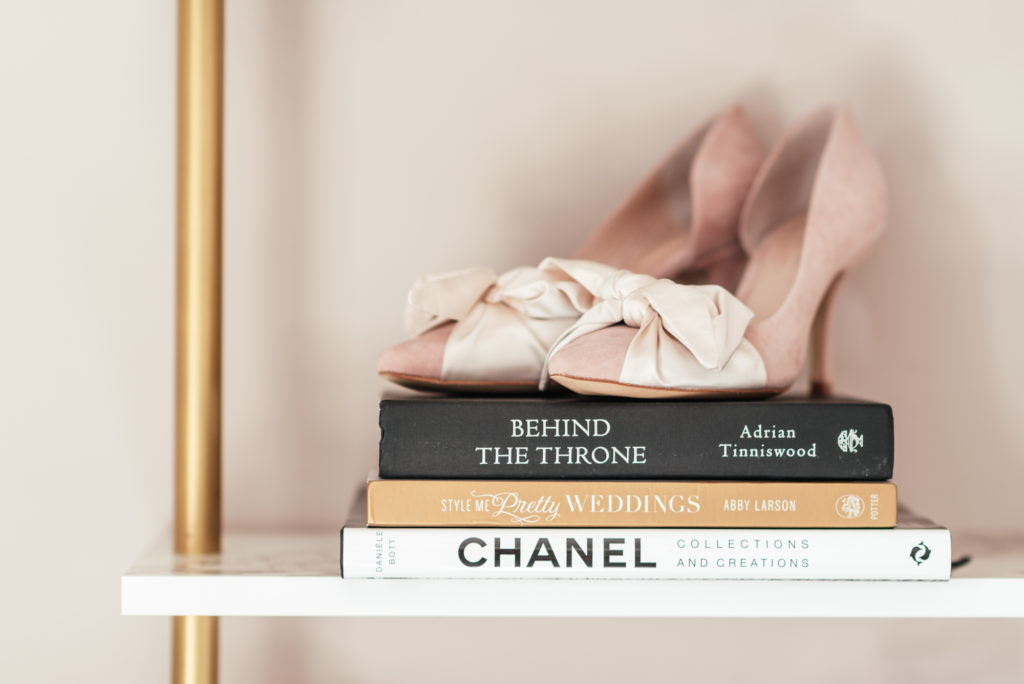
What’s the Difference Between ‘Normal’ Brand Design and Luxury Brand Design?
Brand design connects your brand’s values to an audience you want to work with, this allows you to forge deep emotional connections. For ‘normal’ brands, their aim is usually to get their audience to like them. They want to appear down to earth, fun, kind or humble so that everyone feels connected to them no matter what their status or background is.
On the other hand, luxury brand design is more concerned with pulling the brand away from the masses. It focuses on exclusivity, so they’re not someone everyone wants to be friends with, but the painfully cool icon that everyone wants to be.
They’re not loud or brash and they never try to desperately gain attention with their designs.
Instead, they emit an elegant, calm confidence to draw attention to themselves. Here’s everything your website should convey through its luxury design:
- We are highly professional and trustworthy.
- We’ve invested heavily in our appearance because we care about your judgement.
- We want your experience to be flawless because that’s what you can expect when you work with us.
- Everything we do is perfect and there is no room for error.
- We constantly aim to do better than the competition.
- We always go above and beyond.
- You can trust that we will always deliver on our promise.
- We are experts at what we do.
- We care deeply about our customers.
- You are always in safe hands when you choose to do business with us.
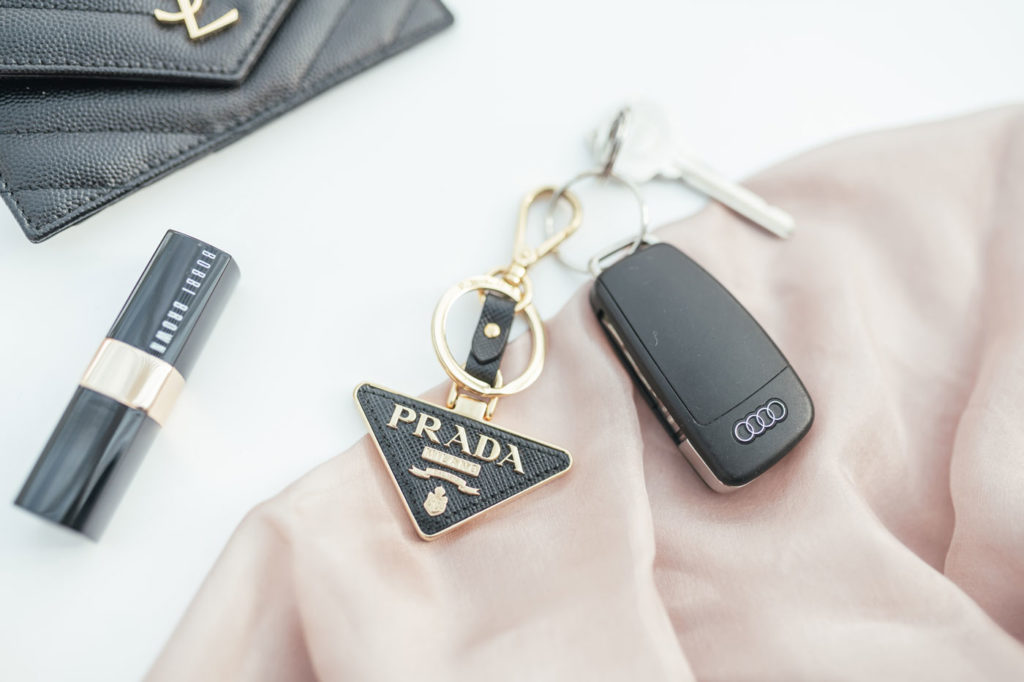
How Do I Get My Audience to Feel Something Through My Luxury Brand Design?
Know Your Audience
The first and most important step to designing an emotive luxury brand is to know who you are designing for.
When you have a thorough understanding of who your audience is and what makes them tick, you have a far greater chance of creating a luxury design which is going to speak to them on a conscious and subconscious level. Being able to connect with your audience on both levels is essential because our unconscious mind is the primary source of human behaviour and it is driven by emotional impulses.
How to Design for the Subconscious Mind
You need to understand what happens in our subconscious mind because that is where most of our decision-making happens without us even being aware.
As humans, we take shortcuts every minute of every day that we didn’t even know we took. The reason for that, is because our brains use a huge amount of energy, so to stop us from feeling exhausted, they seek shortcuts to make us more efficient.
Our subconscious mind is fast, automatic, frequent, emotional and stereotypic whereas our conscious mind is slow, effortful, logical, calculating, conscious and infrequent.
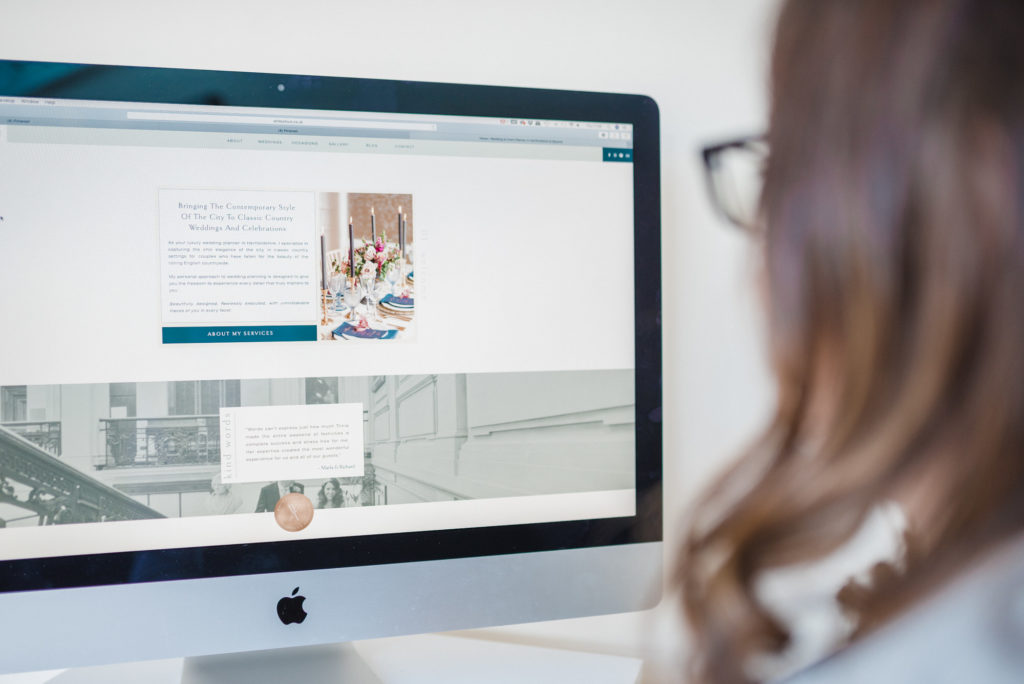
#1 Create a Simple, Easy-To-Use Website
Because our brains don’t like to use too much power, we need to first make their experience online as seamless as possible. That means designing a luxury website which is clean, simple and easy to use.
It needs to clearly convey who you are and what you do, making it incredibly easy for the customer to get to where they want to go.
I see many luxury brands trying too hard to look unique and as a result, their website looks confusing and is very hard to navigate. People form aesthetic reactions to a web page in the first 17 to 50 milliseconds after exposure, which is why it’s so important to encourage comfort and trust.
If your audience views your website as difficult or confusing, they will also view your product or service negatively too. That’s the subconscious mind creating quick patterns to reduce thinking effort.
#2 Choose Your Colours Wisely
Colours are one of the most powerful design elements that evoke strong emotional responses.
You can set a mood with colours and create an atmosphere which aligns with your brand’s values. Whether that be elegance, warmth, sophistication or tranquillity. It’s important to carefully consider the emotional response that each colour triggers as this will give you more control over the impact your design has on your audience.
While there aren’t specific rules to follow when it comes to colour, luxury palettes usually have the following traits:
- Neutral shades are popular in luxury designs because they convey a feeling of understated elegance. They are neither masculine nor feminine which means they have a wide appeal and they are considered very calming which makes you appear more trustworthy.
- Muted tones are commonplace in luxury design because they appear more timeless as opposed to bright garish colours which can be perceived as confrontational and harsh.
- Contrasting colours can be used to make a brand look more distinctive without looking trashy or tasteless. A darker shade against a light shade can give your luxury design the edge that it needs.
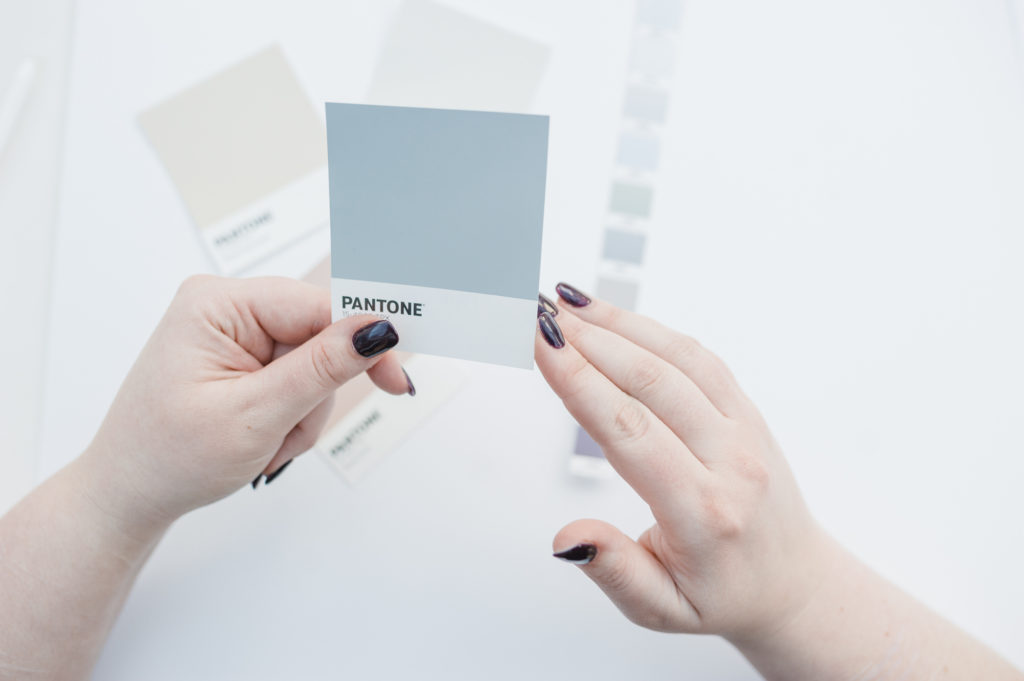
#3 Be Careful With Your Fonts
We treat fonts the same way we treat stereotypes. That means if we are used to seeing a certain font style on tacky, childish or tasteless brands, then our minds we’ll find it hard to look beyond that perception. Luxury fonts usually have the following similarities:
- They are flawlessly balanced, using precise kerning to convey perfection.
- They are usually a solid colour, and they stay away from drop shadows and outlines.
- The letters are usually crisp and the only time they use rounded corners is for signatures of secondary fonts.
- All letters are on a perfect horizon. This includes the baseline, crossbars, accent line, and cap line.
- It should make perfect use of whitespace because white space is the ultimate luxury. The less crowded your font looks the more elitist it appears to the audience. Less is more when it comes to luxury branding.
Your luxury font should be subtle, sophisticated and well-crafted, to convey elegance and calm confidence.

What Do You Stand For?
When designing a luxury brand, it’s crucial to think deeply about what you stand for because this will be the foundation for all of your brand design elements.
Think about the words you would use to define your brand as those will be the most important words to refer back to when creating your luxury brand design.
When clients tell me the words they identify with, I use them to create their unique mood boards. This is a visual representation of your brand which takes inspiration from places, people, colours, textures and patterns.
Here are a few examples from high-end clients I’ve worked with previously:
- Fine art but fun for a luxury wedding photographer.
- Strength and freedom were the words from a pain-release expert.
- Empowerment from a photographer.
- Fine art, renaissance and romance for a women’s accessory brand.
Using their words as a starting point, I can then pick the appropriate colours, fonts, graphics and layouts to perfectly reflect the mood they want to emulate.
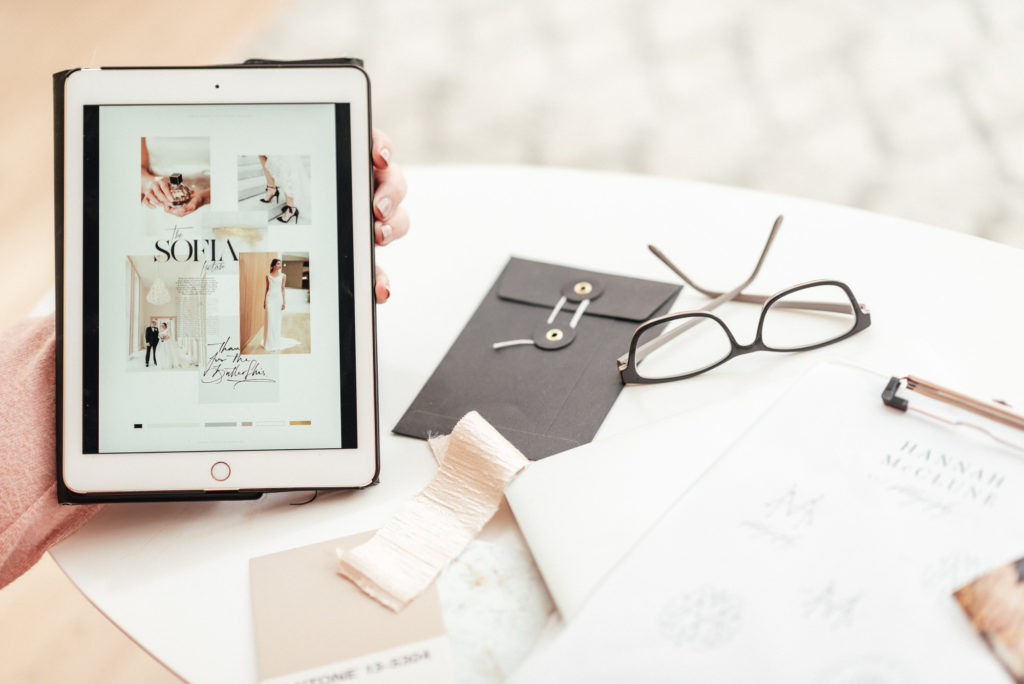
The Devil is In The Detail
In today’s over-saturated market, it’s becoming increasingly hard to stand out. That’s why the term luxury is slowly moving away from the product or service itself and is geared more towards the experience which surrounds it.
To provide a seamless experience for your users you’ve got to carefully refine every element in your design. Small details which your audience may not even notice can ultimately work together to build a flawless luxury brand and a beautiful experience for the end user.
Here are the details you should always consider:
- Minimise your focal points to look sleek and minimal.
- Make use of white space to convey sophistication and elegance.
- Always use neutral colours as your base colour palette and one pop of colour as your accent colour. Using crazy colours everywhere will downgrade your brand. Keep it simple.
- Use high-end photography and stay away from clip-art style illustrations and graphics as they can make your brand appear cheap.
- Keep your logo simple and uncluttered. I usually go for a logotype which is simply the brand name in luxurious typography.
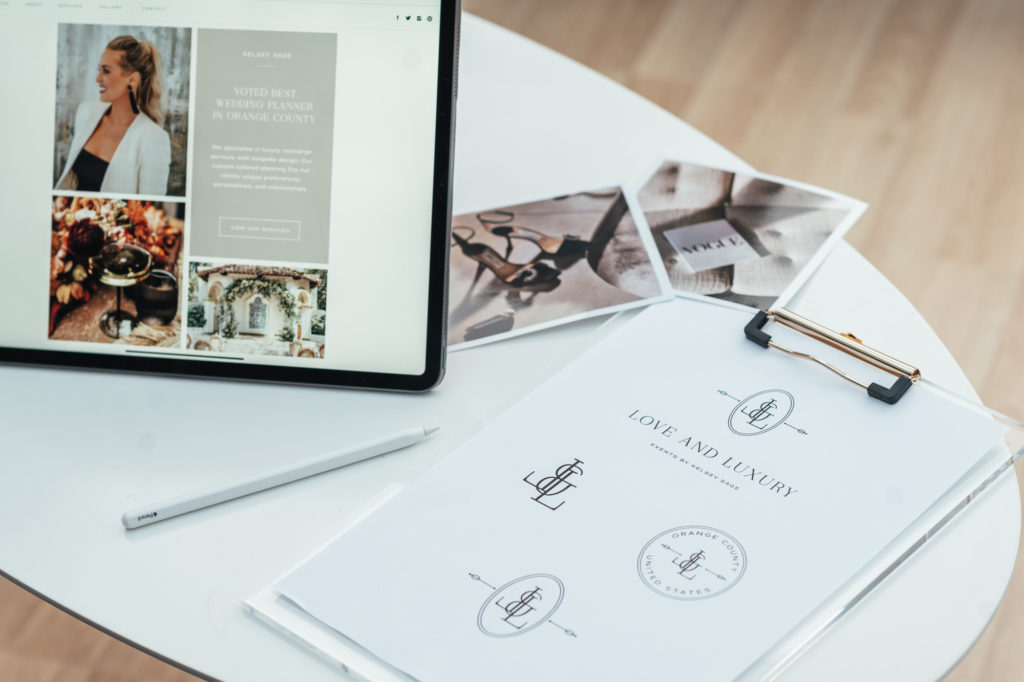
Simplicity is Key
I hope I’ve helped you learn about what it takes to convey a luxury brand online, but if there’s one thing you should take away from this article it’s this. Keep it simple.
Whenever you’re in doubt, ask yourself, does this look cool, calm and elegant? If the answer is no, go back to the drawing board.
I hope you’re ready to apply these tips and tricks to create a high-end luxury brand which deeply connects with the people you want to work with.
If you want expert help building a luxury brand, book a free consultation call or make an enquiry and let’s take your business to the next level.